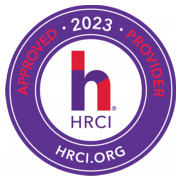| Date | Venue | Fee | |
|---|---|---|---|
| 16 Mar - 20 Mar 2026 | Dubai – UAE | $ 5,950 | Register Now |
| 22 Jun - 26 Jun 2026 | Dubai – UAE | $ 5,950 | Register Now |
| 19 Oct - 23 Oct 2026 | Copenhagen - Denmark | $ 5,950 | Register Now |
| 14 Dec - 18 Dec 2026 | Dubai – UAE | $ 5,950 | Register Now |
About the Course
It is not new that the demand for collaborators with different profiles has increased, including people with disabilities, black people, different nationalities, gender identities, and sexual orientations. On the other hand, like investors, people are looking to work in companies with proposals far beyond the financial one.
Companies understand the importance of representing minority groups in their teams. In addition to the direct benefits to the business - it is widely known that different teams are more creative and innovative - organisations that invest in and value Diversity, Equity, and Inclusion actively participate in the process of change essential for building a more just egalitarian society. And this social role attracts talent who also seeks purpose in their work. However, these new profiles require leaders who can work with diversity and know-how to involve the team so that it also follows this path.
Core Objectives
Inclusive leadership seeks to ensure that all people are treated equally, working to make them feel safe and with a sense of belonging, regardless of their characteristics.
The delegates will achieve the following objectives:
- Promote the development of people with equity
- Allowing people under subordination to improve themselves and be able to carry out teamwork respecting different points of view
- Achieving goals, increasing productivity, innovation, and teamwork with good diversity management
- Implement diversity at all times of the employee's cycle, especially in attraction and selection
- Discover ways to break prejudices and promote behaviours that foster an inclusive organisational culture
Training Approach
This training course will provide a valuable exchange of knowledge, ideas, and experiences. Immerse in experiential activities, collaborative group exercises, and face-to-face networking opportunities with your peers. There will be an alternation between theoretical expositions and practical exercises – individual and in groups, analysis of case studies, directed debates with the group's active participation, and simulations of representative situations of the professional context.
The Attendees
HR Professionals with demands to implement diversity and inclusion who do not know where to start and how to take the plan forward based on business indicators. That seeks to implement diversity at all times of the employee's cycle, especially in attraction and selection.
Likewise, it will be valuable to the professionals but not limited to the following:
- Leaders of all levels
- Managers of all levels
- HR Professionals
- Business Owners
- Organisational Change Managers
- Those who want to develop this competency
Daily Discussion
DAY ONE: INCLUSIVE LEADERSHIP
- Why inclusive leadership?
- Inclusion is not Diversity
- The business case for inclusive leadership
- The Impact of Inclusion
- Employer Branding, Recruitment, and Retention
DAY TWO: TEAM MOTIVATION, SATISFACTION, AND PERFORMANCE
- Innovation and Creativity
- Inclusive Leadership Model
- Key Characteristics of Inclusive Leadership
- Inclusive Leadership Skills
- Pitfalls to Avoid
DAY THREE: LEADING WITH MULTICULTURALITY I
- Main Origins and Associated Problems
- Stereotypes and Prejudices
- Cultural Misunderstandings
- More frequent attitudes towards conflicts and rules
- Models and Standards of Communication and Feedback dominant in International Cultures
- Techniques for adequate management of people that take into account their expectations and origins
- Relationship with Time and Punctuality
- Relationship with Authority and Rules
DAY FOUR: LEADING WITH MULTICULTURALITY II
- Relation to the Unknown and Ambiguity
- Competition vs. Cooperation
- Me vs. Us
- Types of Effective Leadership
- Effective Motivation Strategies
- Hierarchical Distance Index
- Individualism vs. Collectivism
- Masculinity vs. Femininity
DAY FIVE: BEST PRACTICES FOR INCLUSIVE ORGANISATIONS
- Incorporate diversity and inclusion into the company's strategy and culture
- Gain leadership commitment and motivation
- Education and training for Leaders
- Deploy Measurement and Accountability
- Conclusion: Application in the workplace
- Guidelines for Workplace Situations
Certificate Awarded
Upon successful completion of this training course, participants will be awarded a Certificate of Completion from XCalibre Training Centre, acknowledging their accomplishment. This certificate serves as a testament to their dedication to developing their skills and advancing their expertise in their respective fields.

Course Enquiry

A Human Resource Certification Institute (HRCI)® Pre-approved Training Course

